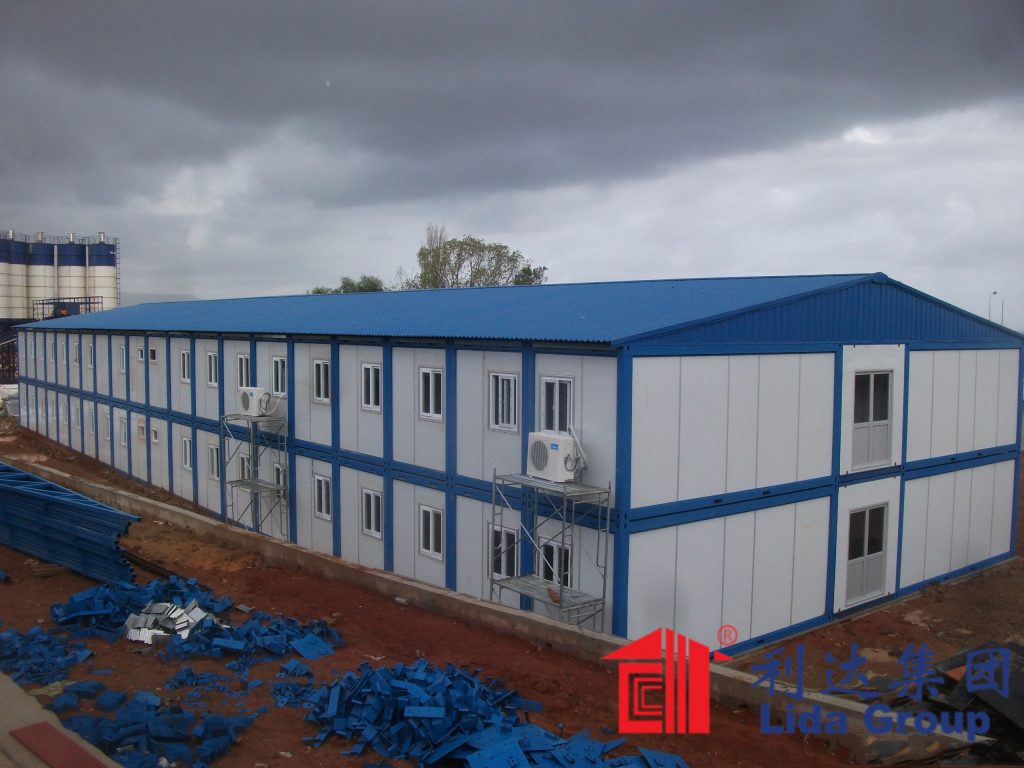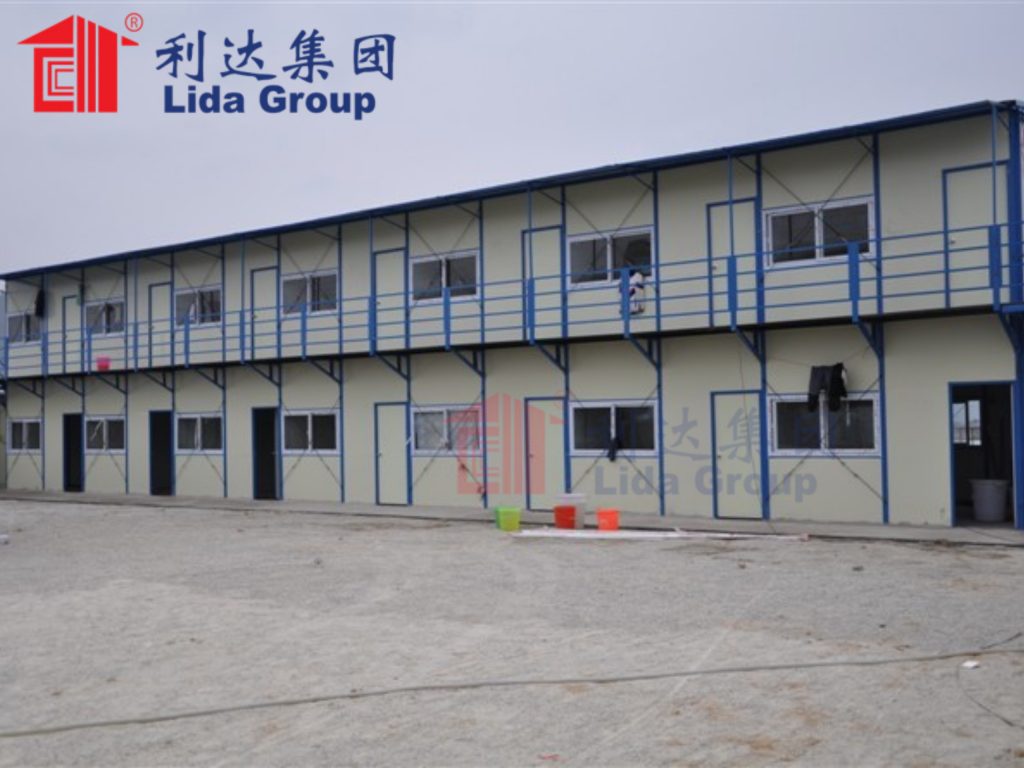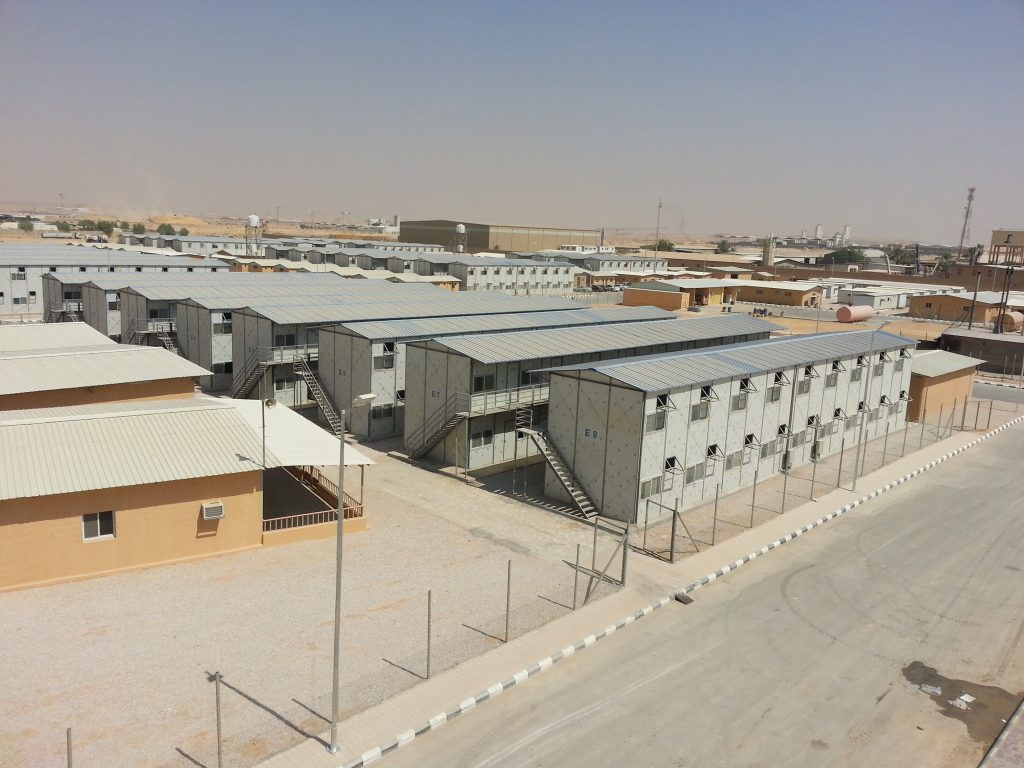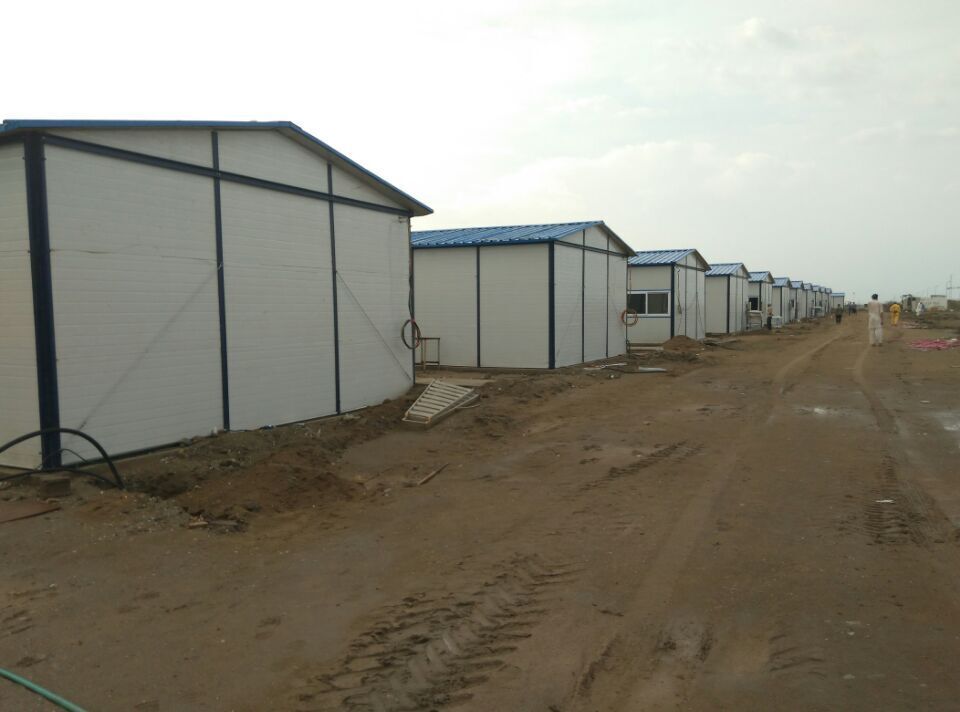Pioneering Prefab: How Modular Accommodations Are Transforming Isolated Research Stations
In the far-flung corners of the globe, where the most cutting-edge scientific research takes place, a quiet revolution is underway. Isolated research stations, once reliant on rudimentary living quarters, are now embracing the transformative power of modular prefabricated accommodations. At the forefront of this trend is Lida Group, a pioneering provider of innovative modular solutions designed to meet the unique needs of these remote research hubs.
Catering to Challenging Environments
The challenges faced by researchers operating in isolated, inhospitable environments are manifold. From the blistering heat of the desert to the bone-chilling cold of the Arctic, these stations must contend with extreme weather conditions that can make traditional construction methods impractical, if not downright impossible. Moreover, the logistics of transporting heavy building materials to remote locations can be daunting, often requiring specialized equipment and significant investment of time and resources.
Lida Group’s modular prefabricated accommodations offer a game-changing solution to these challenges. Engineered to withstand the harshest conditions, these modular units are designed to be easily transported, rapidly deployed, and readily adaptable to the specific requirements of each research station.

The Key Innovations: Removable Composite Insulated Wall Panels
At the heart of Lida Group’s modular accommodations are the innovative removable composite insulated wall panels. These panels, crafted with meticulous attention to detail, are the lynchpin of the company’s approach to creating livable, comfortable, and energy-efficient living spaces in even the most extreme environments.
The panels are constructed using a proprietary composite material that combines exceptional insulating properties with remarkable durability. This unique blend of materials allows the panels to maintain a stable indoor temperature, even in the face of dramatic outdoor temperature fluctuations. The removable nature of the panels further enhances their versatility, enabling researchers to easily configure and reconfigure their living spaces as needed.
“The removable composite insulated wall panels are a game-changer for isolated research stations,” explains Zhou, Lida Group’s chief engineer. “By providing a highly efficient and adaptable insulation solution, we’re able to create living quarters that are not only comfortable but also energy-efficient, reducing the burden on often-limited power resources.”
Modular Dormitories: Tailored to Specific Needs
The modular dormitories offered by Lida Group are designed to be readily adaptable to the diverse requirements of research stations around the world. Each dormitory unit is constructed using the company’s proprietary removable composite insulated wall panels, ensuring a consistent level of thermal efficiency and comfort.
These modular units can be configured in a variety of layouts, from single-occupancy rooms to shared dormitories, catering to the preferences and needs of the research teams. The modular design also allows for easy expansion or reconfiguration, ensuring that the accommodations can grow and evolve alongside the research station’s changing requirements.
“One of the key advantages of our modular dormitories is their ability to adapt to the specific needs of each research station,” says Lida Group’s project manager, Chen. “Whether it’s a small-scale facility in the Antarctic or a larger station in the Sahara, we can tailor the design and layout to provide the most comfortable and functional living spaces possible.”

Rapid Deployment and Ease of Maintenance
The modularity of Lida Group’s accommodations doesn’t just extend to the design; it also plays a crucial role in the deployment and maintenance of these living spaces. The prefabricated nature of the units allows for rapid installation, significantly reducing the time and resources required to establish new research stations or expand existing ones.
“In many cases, our modular dormitories can be installed and made ready for occupancy within a matter of days, rather than the weeks or even months required for traditional construction methods,” explains Chen. “This rapid deployment capability is invaluable for researchers who need to get their work underway as quickly as possible.”
Maintaining these modular accommodations is also a relatively straightforward process, thanks to the removable wall panels and the modular design. If a panel becomes damaged or needs to be replaced, it can be swapped out with minimal disruption to the living space. This ease of maintenance helps to ensure that the accommodations remain in top condition, providing a comfortable and reliable living environment for researchers.
Sustainability and Energy Efficiency
Sustainability is a key concern for Lida Group, and the company’s modular accommodations are designed with a strong emphasis on energy efficiency and environmental responsibility. The removable composite insulated wall panels play a crucial role in this, helping to minimize the energy consumption required to maintain a comfortable indoor climate.
“We’ve put a lot of thought and engineering into ensuring that our modular accommodations are as energy-efficient as possible,” says Zhou. “By using high-performance insulation materials and optimizing the design of the panels, we’re able to significantly reduce the energy demands of these living spaces, making them more sustainable and cost-effective to operate.”
In addition to the energy-efficient wall panels, Lida Group’s modular accommodations are often equipped with a range of renewable energy technologies, such as solar panels and wind turbines. This helps to further reduce the reliance on traditional, carbon-intensive power sources, aligning with the environmental priorities of many research stations.
“Sustainability is not just a buzzword for us; it’s a core part of our design philosophy,” emphasizes Chen. “We’re committed to providing solutions that not only meet the practical needs of our clients but also contribute to a more environmentally responsible future.”

Addressing Unique Challenges
While the modular accommodations offered by Lida Group are designed to be highly versatile, the company recognizes that each research station presents its own unique set of challenges. To address these challenges, Lida Group works closely with its clients to understand their specific requirements and tailor the solutions accordingly.
For example, research stations located in areas prone to seismic activity may require specialized structural reinforcements to ensure the safety and stability of the modular units. Lida Group’s engineering team is adept at addressing these unique requirements, drawing on their extensive expertise to develop customized solutions that prioritize the well-being and security of the researchers.
Similarly, research stations situated in regions with limited access to fresh water or other critical resources may require innovative water treatment systems or alternative power sources to be integrated into the modular accommodations. Lida Group’s team works tirelessly to identify and implement these specialized solutions, ensuring that the living quarters meet the specific needs of the research station.
“We don’t just sell a one-size-fits-all product,” explains Zhou. “Our approach is to collaborate closely with our clients, understand their unique challenges, and then develop tailored solutions that address those challenges head-on. This level of customization is essential in the world of isolated research stations.”

Enhancing Quality of Life for Researchers
Beyond the practical benefits of Lida Group’s modular accommodations, the company is also focused on enhancing the overall quality of life for researchers living in these remote locations. By providing comfortable, well-designed living spaces, Lida Group aims to support the mental and physical well-being of the scientific community.
“Researchers working in isolated environments face immense challenges, both physical and psychological,” says Chen. “Our goal is to create living spaces that not only meet their practical needs but also provide a sense of respite and comfort – a home away from home, if you will.”
The modular dormitories feature a range of amenities and design elements aimed at fostering a more comfortable and enjoyable living experience. This includes spacious common areas for socializing and relaxation, as well as private sleeping quarters that offer a sense of privacy and personal space.
“We’ve incorporated design elements that are inspired by the latest trends in hospitality and residential architecture,” explains Zhou. “By creating warm, inviting living spaces, we hope to support the mental well-being of researchers and help them maintain a healthy work-life balance, even in the most remote and challenging environments.”

Collaboration and Knowledge Sharing
Lida Group’s commitment to supporting isolated research stations goes beyond just providing modular accommodations. The company is also actively engaged in fostering collaboration and knowledge-sharing among the scientific community.
“We see ourselves as more than just a supplier of modular solutions,” says Chen. “We’re partners in the pursuit of scientific discovery, and we’re dedicated to supporting the research community in any way we can.”
To this end, Lida Group regularly hosts workshops, conferences, and educational events, bringing together researchers from around the world to share best practices, discuss emerging technologies, and explore new ways of optimizing the living and working environments in isolated research stations.
“The challenges faced by researchers in these remote locations are not unique to any single station or region,” explains Zhou. “By facilitating knowledge-sharing and collaboration, we can help the scientific community collectively find solutions that benefit everyone.”
This collaborative approach extends to the company’s own product development as well. Lida Group actively solicits feedback from its clients, incorporating their insights and suggestions into the ongoing refinement of its modular accommodations.
“Our clients are the true experts when it comes to the needs of isolated research stations,” says Chen. “By listening to their feedback and working closely with them, we’re able to continually improve our solutions and ensure that they remain at the forefront of the industry.”

A Vision for the Future
As the demand for modular accommodations in isolated research stations continues to grow, Lida Group is positioning itself as a leader in this rapidly evolving field. The company’s commitment to innovation, sustainability, and supporting the scientific community has earned it a reputation as a trusted partner for researchers around the world.
“We’re not just a provider of modular solutions; we’re a catalyst for change in the way that isolated research stations are designed and operated,” says Zhou. “Our vision is to transform the living experiences of researchers, empowering them to focus on their work without the distractions and challenges of suboptimal living conditions.”
Looking ahead, Lida Group is exploring new frontiers in modular design, incorporating the latest advancements in sustainable materials, renewable energy technologies, and smart home automation. The company is also actively expanding its global reach, establishing partnerships with research institutions and governments in an effort to make its innovative solutions accessible to a wider audience.
“The future of isolated research stations is bright, and Lida Group is proud to be at the forefront of this transformation,” concludes Chen. “By combining cutting-edge technology, sustainable design, and a deep understanding of the unique needs of the scientific community, we’re creating living spaces that not only meet the practical demands of researchers but also enhance their overall quality of life and support their vital work.”

Conclusion
Lida Group’s modular prefabricated accommodations are revolutionizing the way isolated research stations are designed and operated. By leveraging the company’s innovative removable composite insulated wall panels and adaptable modular design, these living spaces are providing researchers with comfortable, energy-efficient, and sustainable living environments, even in the most challenging conditions.
Through close collaboration with its clients, Lida Group has demonstrated a unwavering commitment to addressing the unique challenges faced by each research station, tailoring its solutions to meet their specific needs. This focus on customization, combined with the company’s emphasis on sustainability and quality of life, has positioned Lida Group as a trusted partner in the pursuit of scientific discovery.
As the demand for modular accommodations continues to grow, Lida Group’s vision for the future of isolated research stations remains clear: to create living spaces that not only meet the practical needs of researchers but also enhance their overall well-being and support their vital work. By continuing to push the boundaries of innovation and collaboration, the company is poised to play a pivotal role in shaping the next chapter of scientific exploration and discovery.

Related news
-
Farmers purchase demountable prefabricated farmstay units from Lida Group constructed off-site for seasonal workers utilizing insulated composite panel systems.
2024-10-21 17:04:12
-
Cargo firm donates decommissioned refrigerated containers to Lida Group for reuse as foundationless emergency portable clinics with removable insulated wall systems.
2024-10-16 15:19:15
-
Renowned architectural firm Zaha Hadid designs high-end concept mobile studio deployed as foundation-free prefabricated sandwich panel structure on minimal metal chassis by Lida Group.
2024-10-12 15:38:48
contact us
- Tel: +86-532-88966982
- Whatsapp: +86-13793209022
- E-mail: sales@lidajituan.com


